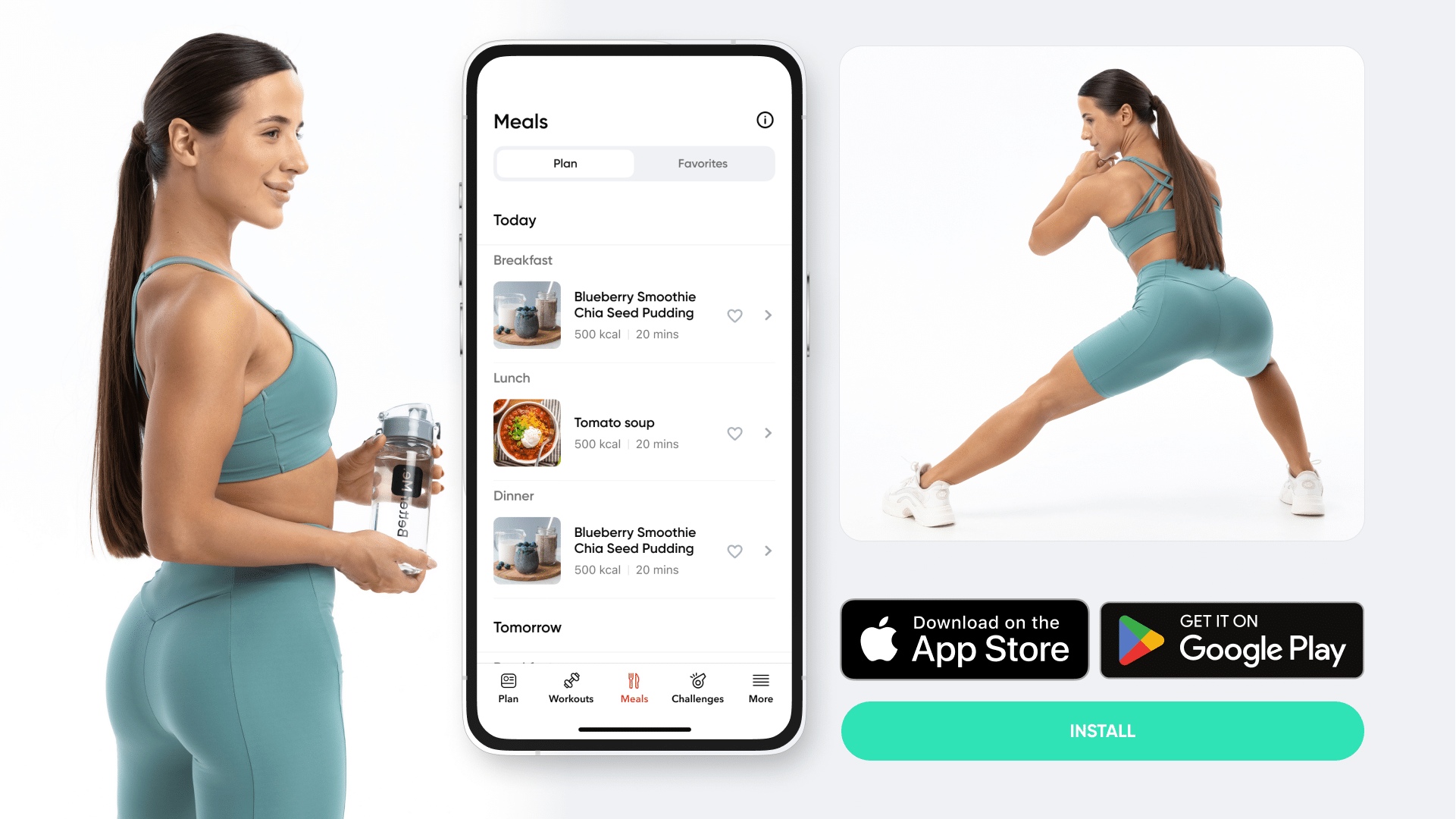Losing productivity is easy. The good news is that you can resurrect your productivity with positive habits.
Here are 11 practical productivity tips for getting things done.
What Are the Top Productivity Tips?
- No multitasking
- Get rid of distractions
- Incorporate lifestyle changes
- Take breaks
- Practice mindfulness
- Learn to say “no”
- Engage in physical exercise
- Tidy up your workplace
- Set goals the evening before
- Let go of perfectionism
- Track the time when you’re most productive and use it!
No multitasking
The myths around multitasking assure us that we’re capable of doing multiple things at the same time. However, studies have found our brains to be incapable of focusing on more than one thing at the same time (9).
Boost your productivity by focusing on one task instead – perhaps this one is the most effective productivity tip for work.
Get rid of distractions
Distractions, both self-imposed and environmentally-imposed, rob you of your time. Research has shown that it may take a lot of energy and time to refocus (upward of 23 minutes) (11).
An innocent message notification or a phone call kills the whole working “buzz”.
You can change the situation by:
- Using a browser blocker to avoid time-wasting sites
- Closing your email tab;
- Switching your phone to “do not disturb” mode or putting it on mute
Incorporate lifestyle changes
Your routine matters: whether your sleep time is regulated or not, whether you eat healthily or neglect this rule – this all affects your productivity.
Here’s the simple chain of decreased productivity with disrupted sleep – you don’t sleep enough or sleep too much and therefore, you have a hard time focusing on mundane tasks. Studies have shown the positive effects good sleep can have on your focus and attention (10).
You can’t function at your best when you’re tired, right?
Eating healthily is no less important. By eating foods that are high in vitamins, you boost your brain’s ability to work. These healthy foods include fish, berries, vegetables, nuts, dark chocolate, and ingredients that are rich in fiber and healthy fats (3).
Take breaks
Research has found that taking breaks can enhance your productivity (5). Try to experiment with it for just one day: take a 5-minute break every hour. Avoid scrolling social media during this break. Simply stand up from your chair (your back will be grateful) and walk around.
Of all the working-from-home tips, this one could be particularly beneficial. A flexible schedule helps you shift your regime to convenient working hours and take breaks at any time you want.
Why not take advantage of it?
If you’re working from the office or any other place, simply stand up from your chair, walk out to the hall, or have a chat with a free co-worker.
Yanking yourself back in shape has never been so easy with our game-changing fitness app! Start transforming your life with BetterMe!
Practice mindfulness
What is mindfulness? Mindfulness is the human ability to be actively aware of where you are and what you’re doing without being overly reactive or judgmental to what’s going on around you (13). A great variety of Mindfulness Tips may help you clear your mind and focus on one thing.
A randomized controlled study in a company with 60 workers compared a 6-week versus half-day seminar on mindfulness (8), finding that mindfulness techniques in the workplace can boost productivity and work-life balance.
Learn to say “no”
You need to be bold and say no to some requests. Your coworker may ask you a favor and it’s difficult to say no as you’re in constant people-pleasing mode.
Surely, you need to help some people sometimes and you need to do the tasks your boss tells you to do. However, you need to learn to say no to multiple requests, especially if you’re working on a task at the moment.
By saying no, you’ll save your energy and contribute toward your goals (4).
Engage in physical exercise
Working out offers a huge array of benefits, including mental ones. Engaging in physical exercise ultimately impacts your cognitive abilities such as thinking, learning, remembering, speaking, focusing, and listening (12).
Mental Reset becomes more vital when accompanied by active body movements.
You don’t need to lift weights or do cardio. A brisk walk, riding a bike, or playing any type of sport should do it.
Tidy up your workplace
Obviously, as you spend 8 hours per day at your workplace, you need to take care of it. Curate your workplace to make you feel focused and energized. Here are a few tips:
- Add a plant to your workplace. A study showed that people with plants nearby have a 12% faster reaction time on computer tests (7).
- Position your desk near the window. Studies have highlighted the advantageous impact of natural light on work performance (6).
Set goals the evening before
Create a short list of things you need to do the next day in the evening, but make sure it doesn’t become a laundry list of things.
A good tactic is to utilize a 1-3-5 rule to empower your to-do list. You pick one big thing you want to accomplish, then three medium-sized things, and five small things (2).
Let go of perfectionism
One of the most damaging things that deteriorates your productivity can be your overboard expectations and demands you place on yourself. Obsessing about doing everything perfectly can hinder your progress and spoil your mood.
Stop focusing on perfection by implementing a timebox – a certain timespan that dictates how long you’ll work on a specific item. The end of the timebox means the task is done. This tactic may gradually remove some pressure.
Read more: Morning and Night Routines to Make You More Productive
Track the time when you’re most productive and use it!
When it comes to productivity tips for procrastinators, it’s important to know your personal “energy period”. In simple words, pay close attention to the times of day when you’re most invigorated.
Watch your energy during the day and jot it down in your journal. You’ll be able to spot your prime energy time – the time when you’re at your best.
By tracking these periods of time, you’ll allocate your work more effectively.
What Are 3 Ways to Increase Productivity?
What if you’ve tried the aforementioned tips and are still lacking a sense of productivity? Check out these three additional ways to enhance your productivity:
- Seek professional help. If you often lack interest, energy, and focus when doing something, it may be helpful to see a mental healthcare provider. The causes for your lack of productivity may be deeper, so you’ll need to work with someone who can help you figure them out.
- Reframe the attitude toward your task. Your thinking matters a lot. For example, instead of uttering “Another project again” try to think “Wonderful, I have another project, which means I’ll learn something new.”
- Take a longer break. Sometimes 5 or 10 minutes between tasks may not be enough. Therefore, you should consider taking hour-long breaks or if possible day-long breaks from work. Take a trip to a nearby coffee shop or drive to another city with your friends. Grab some popcorn and go to the movies. If you’re not working from home, simply ask your boss about a short-term vacation.
If you wish to cinch your waist, tone up your bat wings, blast away the muffin top – our fitness app was created to cater to all your needs! BetterMe won’t give excess weight a chance!
FAQs
What is the 1 3 5 rule of productivity?
The 1-3-5 rule of productivity entails doing one major task, three medium tasks, and five small tasks during the day. Starting with the most important and difficult task is your priority at this point. You can incorporate this rule into your workplace routine and other life spheres.
What are 4 ways to improve production?
The four practical ways to improve productivity include focusing on one task instead of multitasking, starting with the most difficult tasks and ending with the easy ones, taking short breaks, and eliminating distractions.
How can you be more productive? Top 5 tips
The key 5 tips for enhanced productivity include creating a healthier lifestyle routine with better sleep and food, establishing clear goals starting from the high-importance and ending with low-importance tasks, avoiding multitasking, giving yourself a short rest, and eliminating distractions.
The Bottom Line
Productivity is essential for completing important tasks. When we lose productivity, we should work on regaining it.
If you lack the desire and focus to do something, you may need additional professional help. Contacting your healthcare provider can be a good decision at this point.
It’s important to note that it’s okay to be unproductive as we are all human beings with our own personal stories, problems, and conditions. Be sure to get help if you find it difficult to figure it all out on your own.
DISCLAIMER:
This article is intended for general informational purposes only and does not serve to address individual circumstances. It is not a substitute for professional advice or help and should not be relied on for making any kind of decision-making. Any action taken as a direct or indirect result of the information in this article is entirely at your own risk and is your sole responsibility.
BetterMe, its content staff, and its medical advisors accept no responsibility for inaccuracies, errors, misstatements, inconsistencies, or omissions and specifically disclaim any liability, loss or risk, personal, professional or otherwise, which may be incurred as a consequence, directly or indirectly, of the use and/or application of any content.
You should always seek the advice of your physician or other qualified health provider with any questions you may have regarding a medical condition or your specific situation. Never disregard professional medical advice or delay seeking it because of BetterMe content. If you suspect or think you may have a medical emergency, call your doctor.
SOURCES:
- 80/20 – How to Increase Your Productivity by Doing Less (ubc.ca)
- A Better To-Do List: The 1-3-5 Rule (2020, themuse.com)
- Brain Foods that May Help You Concentrate (healthysd.gov)
- Getting More Done: Strategies to Increase Scholarly Productivity (2016, ncbi.nlm.nih.gov)
- Give me a break (2019, apa.org)
- Impact of Windows and Daylight Exposure on Overall Health and Sleep Quality of Office Workers: A Case-Control Pilot Study (2014, ncbi.nlm.nih.gov)
- Interior Plants May Improve Worker Productivity and Reduce Stress in a Windowless Environment1 (1996, westernusc.ca)
- Mindfulness training improves employee well-being: A randomized controlled trial (2018, ncbi.nlm.nih.gov)
- Multicosts of Multitasking (2019, ncbi.nlm.nih.gov)
- The Benefits of Slumber (2013, newsinhealth.nih.gov)
- The Cost of Interrupted Work: More Speed and Stress (uci.edu)
- The Influence of Exercise on Cognitive Abilities (2014, ncbi.nlm.nih.gov)
- What is Mindfulness? (2020, mindful.org)












